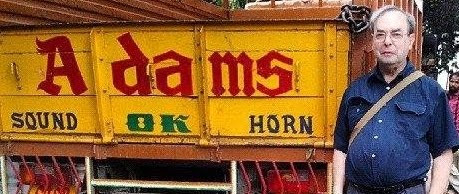The words 'next year in Jerusalem' are recited at the end of every Passover celebration.
But, what would have happened if Albania had become the Jewish Homeland instead of Palestine?
A far-fetched question, you might exclaim, but read on...
Of all the countries in mainland Europe occupied by the Axis Powers during the Second World War, Albania was unique in at least one respect. The number of Jews in that country was greater in 1945 than in 1939 despite being occupied by the 'Nazis'.
This is reasonably well-known. However, what is much less well-known (to me, at least) is that once Albania was under consideration as a new homeland for the Jewish People.
Leo Elton (1883-1947), visited Albania in 1935. His niece, Dorothea Shefer-Vanson, wrote as follows:
"An item in the newspaper ...
...mentioned a document that had been sent to the president of the Hebrew University in 1945 concerning the possibility of settling some of the Jewish refugees then unable to gain access to Mandate-controlled Palestine in Albania. The idea itself was not so alien to me (it is mentioned in Martin Gilbert’s book Churchill and the Jews), but what made me catch my breath was the author of the document. This was Leo Elton, described as ‘a Zionist British journalist’ and known to me as a cousin of my father....
...From the handwritten letter accompanying the report we learned that Leo Elton had indeed visited Albania in 1935. He did so at his own initiative, prompted by newspaper reports of Albania’s willingness to accept Jewish immigration and the restrictions imposed upon entry into the Land of Israel by the British Mandatory authorities. As Martin pointed out, Uncle Leo, though no journalist, was a businessman and hence travelled extensively.
The report is entitled ‘Impressions of a Visit to Albania with Some Observations upon the Opportunities Open to Jewish Settlers in that Country’. Written in impeccable if somewhat flowery English, the report describes in considerable detail the physical, social and economic conditions of Albania, noting ‘it touches the heart how Albania too withered for so long under the blighting hand of the Turk.’ The comparison with the situation in Mandatory Palestine is very clear, and Uncle Leo points out: ‘Although I judge Albania to possess many great natural advantages over Palestine, it has travelled but a very few steps compared with the latter on the road back to vigour and prosperity....
...The soil of Albania is described as fertile and its population sparse, with only one million inhabitants. Leo Elton found that though the population was Muslim, it was not warlike or extreme in character. As we know today, only one Albanian-Jewish family was deported and killed by the Nazis, despite Mussolini’s occupation of the country. All Albania’s Jews were taken in and protected by their Muslim neighbours... "
The whole article may be read by clicking HERE
More detail about Elton's visit were published recently in Haaretz, a Jewish newspaper:
"...So he traveled to the tiny country of a million inhabitants, which was completely cut off from industrialized
The minister also emphasized that, in contrast to the rest of Europe,
...The oranges and lemons, Elton enthused, were the best in the world, and Jews' success in raising oranges in pre-state
...As a first stage Elton recommended establishing a Jewish national entity in
The full text of this article may be read by clicking HERE
You can read more about ALBANIA by clicking HERE

















